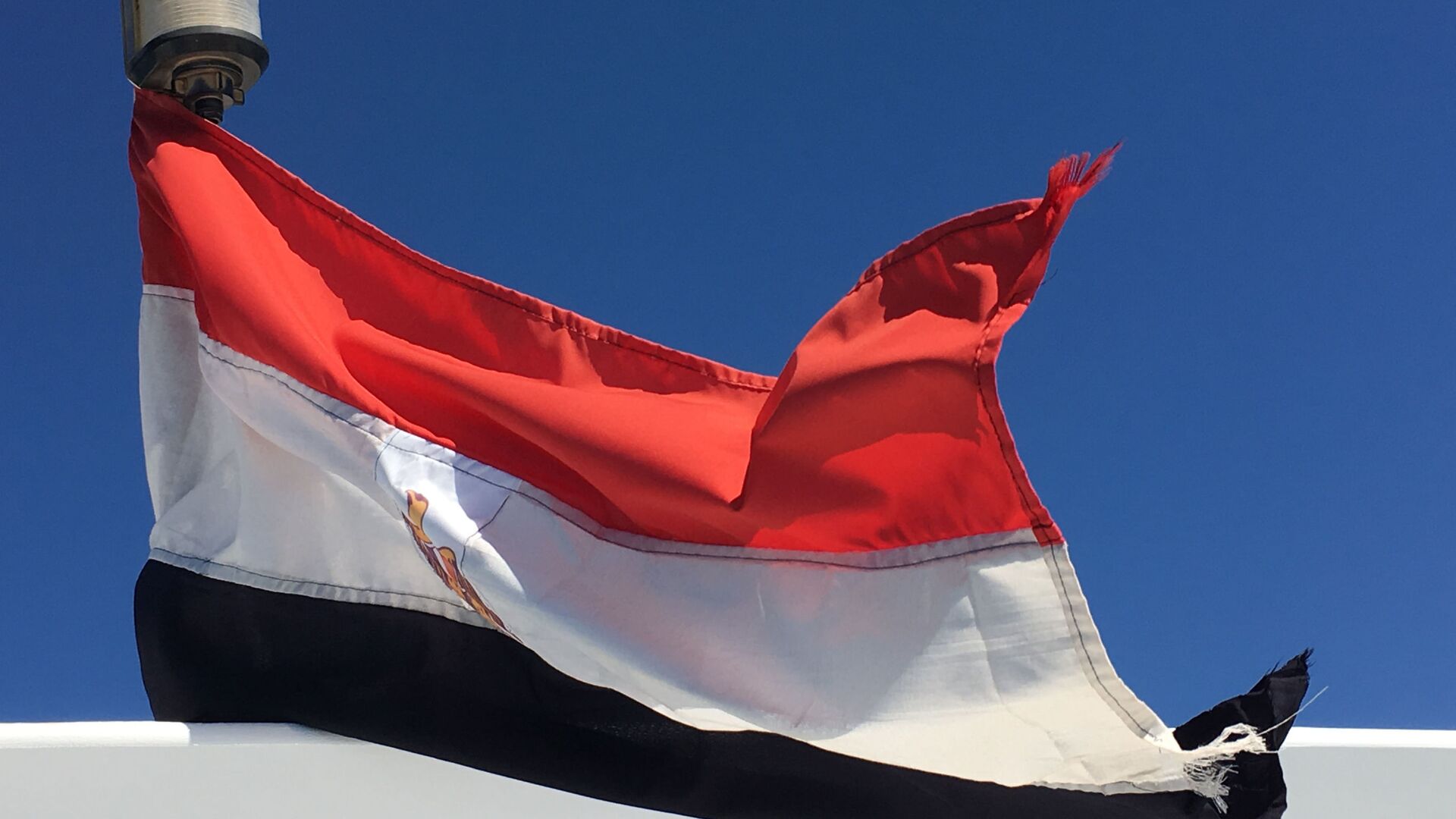Cairo’s Disinterest in US ‘Lecture on How to Live’ Behind $75Mln Military Aid Canceling: Ex-Diplomat
17:27 GMT 19.10.2022 (Updated: 18:30 GMT 19.10.2022)

© Flickr / cattan2011 / The flag, Hurghada, Egypt
Subscribe
Since 1979, Egypt has been one of the largest recipients of US Foreign Military Financing (FMF), totaling $1.3 billion last year. The aid was originally conditional on Cairo maintaining its historic peace with Tel Aviv, but in late 2020, Congress added new conditions to parts of the payment.
US Sen. Patrick Leahy (D-VT), who chairs the Senate Appropriations Committee, has successfully blocked $75 million in military aid from being sent to Egypt after it was held up last month by a group of lawmakers concerned about the North African nation’s human rights record.
The money was withheld via a clause included in the 2021 Consolidated Appropriations Act, a massive omnibus spending bill passed in late December 2020. The law says that of the $1.3 billion in total aid, $75 million of it “shall be withheld from obligation until the Secretary of State determines and reports to the Committees on Appropriations that the Government of Egypt is making clear and consistent progress in releasing political prisoners and providing detainees with due process of law.”
The bill allows for another $225 million to be withheld via a related process with similar standards. Last month, US Secretary of State Antony Blinken allowed $95 million of that aid to go ahead, saying Cairo had made some progress on releasing jailed individuals, among other US demands. However, some lawmakers, including Leahy, opposed that as well.
Ezzat Saad, a former Egyptian Assistant Minister of Foreign Affairs and former Egyptian Ambassador to Russia, told Sputnik on Wednesday that the $75 million was “too small” to be of concern, but demonstrated the importance of Cairo increasing its cooperation with China and Russia.
“The United States practices so-called ‘coercive diplomacy’ in its foreign policy. It includes threats to stop aid or impose sanctions if a weak partner does not behave in the way that Washington wants,” Saad explained.
“Now, the United States is not satisfied with the continuation of cooperation between Moscow and Cairo, so the main ‘democracy’ of the world has taken out of the closet the old reason for all prohibitions: the violation of human rights. But the desire of the American side to lecture on how to live and with whom to cooperate is of little interest to Egypt,” he said.
“The United States is threatening to withhold $75 million in military assistance: only for us this amount is too small, and does not provide significant assistance. We have cooperated with Russia and China, and we will continue to do so: even if Washington continues to exert pressure.”
Egypt has long worked with Russia, and the Soviet Union before it, since the 1952 revolution that brought the Arab Nationalist leader Gamel abd al-Nasser to power. With the US, France, and UK backing Egypt’s rival, Israel, and cooperating in the 1956 invasion of the Suez Canal zone, Cairo found necessary military and technical aid in Moscow, including construction of the massive Aswan High Dam.
More recently, Moscow made a deal to sell Egypt advanced Su-35 strike aircraft, which heavy US pressure, including sanctions, compelled Cairo to back out of. Egypt’s energy ministry is also working with Russia’s Rosatom to build the country’s first nuclear power plant at Dabaa.

